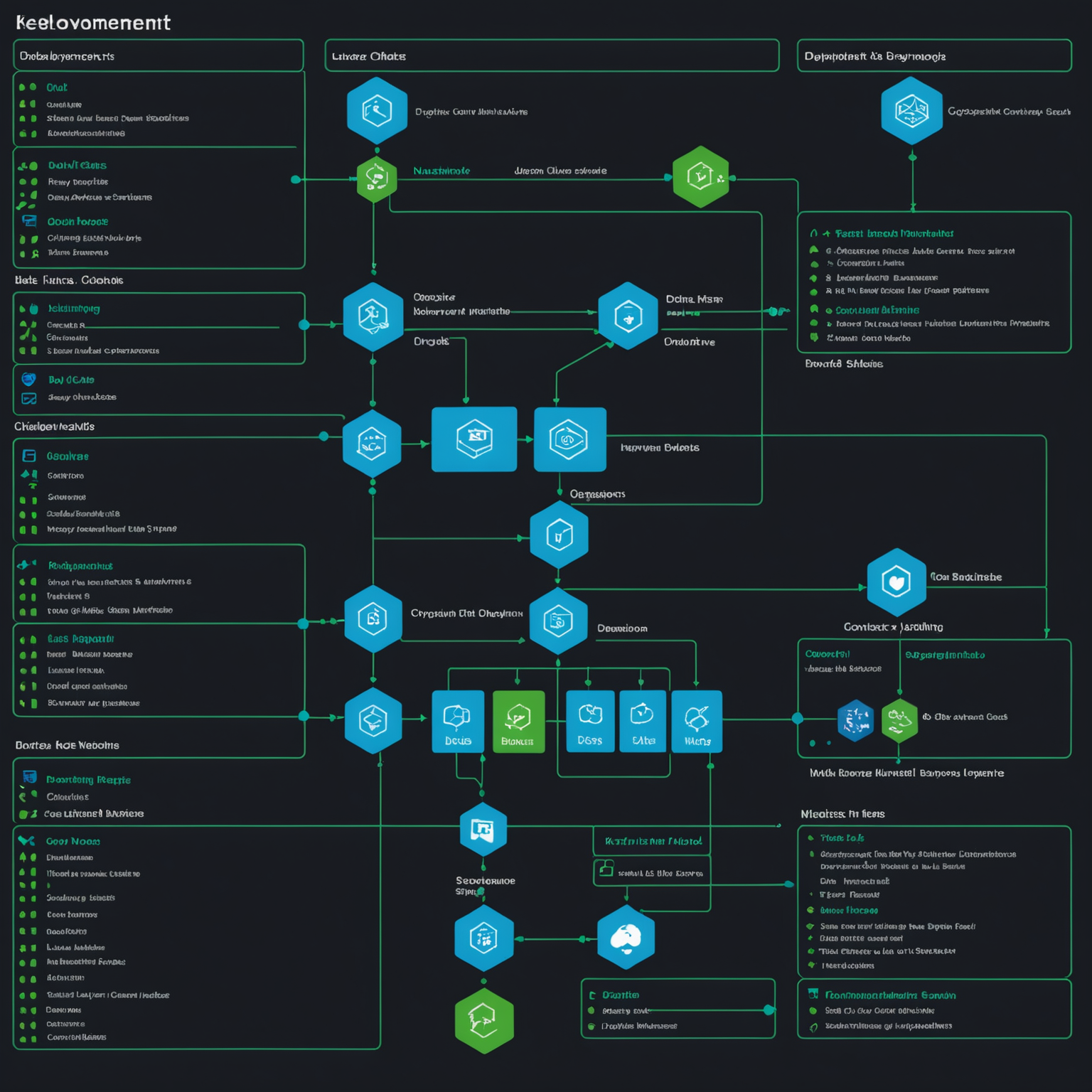Project Beta

Automated deployment system with zero-downtime updates.
Project Beta: Automated Deployment System
Project Beta is a modern deployment automation platform designed for reliability, efficiency, and zero-downtime updates. It streamlines the entire CI/CD pipeline, allowing development teams to focus on building features rather than managing deployments.
Key Features
Zero-Downtime Deployments
The core of Project Beta is its ability to perform seamless updates without any service interruption:
# Example deployment configuration
deployment:
name: web-application
strategy:
type: BlueGreen
healthCheck:
path: /health
port: 8080
initialDelaySeconds: 10
successThreshold: 3
traffic:
stepPercentage: 10
interval: 30s
autoRollback: true
containers:
- name: web-server
image: webapp:${VERSION}
resources:
limits:
cpu: 500m
memory: 512Mi
monitoring:
enabled: true
retentionPeriod: 7d
Advanced Deployment Strategies
Project Beta supports multiple deployment strategies:
- Blue/Green: Maintain two identical environments, switch traffic instantly
- Canary: Gradually shift traffic to the new version
- Rolling: Update instances in batches
- A/B Testing: Route specific users to new versions based on rules
Integrated Monitoring and Rollbacks
The system continuously monitors application health and automatically rolls back in case of issues:
class HealthMonitor {
private readonly metrics: MetricsCollector;
private readonly alertManager: AlertManager;
private readonly deploymentManager: DeploymentManager;
constructor(config: MonitorConfig) {
this.metrics = new MetricsCollector(config.metricsEndpoint);
this.alertManager = new AlertManager(config.alertConfig);
this.deploymentManager = new DeploymentManager(config.deploymentApi);
}
async monitorDeployment(deploymentId: string): Promise<void> {
const deployment = await this.deploymentManager.getDeployment(deploymentId);
const thresholds = deployment.healthThresholds;
// Initialize monitoring session
const session = this.metrics.startSession(deploymentId);
// Set up monitoring interval
const interval = setInterval(async () => {
const metrics = await session.getLatestMetrics();
// Check if any critical metrics exceed thresholds
const criticalViolations = metrics.filter(
(metric) =>
thresholds[metric.name]?.critical &&
metric.value > thresholds[metric.name].critical
);
if (criticalViolations.length > 0) {
// Critical violation detected, initiate rollback
this.alertManager.sendAlert("CRITICAL", {
deployment: deploymentId,
violations: criticalViolations,
action: "AUTO_ROLLBACK",
});
await this.deploymentManager.rollback(deploymentId);
clearInterval(interval);
}
}, config.checkIntervalMs);
// Clean up after deployment is complete
deployment.onComplete(() => clearInterval(interval));
}
}
Technical Architecture
Project Beta leverages a modern infrastructure stack:
- Core Platform: Go and TypeScript for performance and type safety
- Orchestration: Kubernetes with custom controllers
- Configuration: GitOps approach with declarative configs
- Monitoring: Prometheus, Grafana, and custom metrics aggregation
- Security: RBAC, secrets management, and audit logging
Implementation Details
Deployments as Code
All deployments are defined as code, enabling version control and review processes:
import { Deployment, BlueGreenStrategy, Container } from "@project-beta/sdk";
export const createWebAppDeployment = (version: string) => {
return new Deployment({
name: `web-app-${version}`,
environment: "production",
strategy: new BlueGreenStrategy({
healthCheckPath: "/api/health",
successThreshold: 2,
failureThreshold: 1,
timeout: "5m",
}),
containers: [
new Container({
name: "web-app",
image: `registry.example.com/web-app:${version}`,
port: 8080,
env: {
NODE_ENV: "production",
LOG_LEVEL: "info",
},
}),
],
scaling: {
minReplicas: 3,
maxReplicas: 10,
targetCpuUtilization: 70,
},
});
};
Integration Ecosystem
Project Beta integrates with the broader development ecosystem:
- CI systems (GitHub Actions, Jenkins, CircleCI)
- Infrastructure as Code tools (Terraform, Pulumi)
- Issue tracking and project management tools
- Chat platforms for notifications and approvals
Real-World Impact
Since its implementation, Project Beta has significantly improved development workflows:
- 99.99% deployment success rate (up from 92%)
- Average deployment time reduced by 68%
- Zero downtime during updates
- 46% reduction in post-deployment incidents
Future Roadmap
We're actively working on enhancing Project Beta with:
- ML-based deployment optimization and scheduling
- Multi-cluster federation
- Enhanced security scanning and compliance checks
- Cost optimization recommendations
Project Beta represents a new approach to deployment automation that prioritizes reliability and developer experience. By abstracting away the complexity of modern deployment pipelines, it allows teams to ship better software faster.